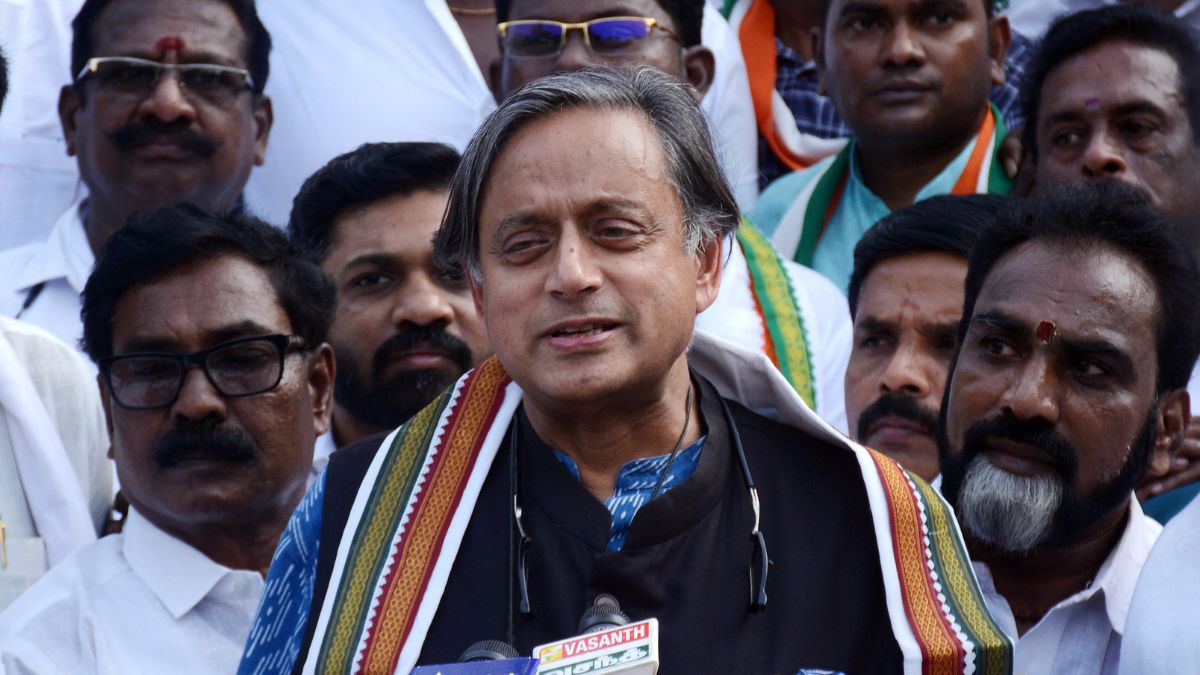Indian Prime Minister Narendra Modi’s recent two-day visit to the United States, at the invitation of President Donald Trump, was widely acknowledged as a diplomatic success. Even Modi’s staunch critics, including Congress leader Shashi Tharoor, found merit in the trip, triggering surprise and speculation. The praise from US media giants like The New York Times and The Washington Post only reinforced the visit’s significance. However, Tharoor’s positive remarks about Modi’s diplomatic engagement did not sit well with his own party leadership.
The Congress party, struggling to maintain political relevance after a series of defeats in key state assembly elections, has ramped up its opposition to the ruling BJP. Its leader, Rahul Gandhi, even escalated his rhetoric against the Indian state after the Modi-led NDA secured a historic third consecutive term. While Congress performed well in the Lok Sabha elections—doubling its seats and earning Rahul Gandhi the Leader of the Opposition position—its subsequent failures in Haryana, Delhi, and Maharashtra have been demoralizing. The situation in Jammu and Kashmir further deepened its troubles, as it disappointed its electoral ally, the National Conference.
Given this backdrop, Tharoor’s praise for Modi’s US visit became a talking point, especially on social media. A viral video of his remarks led to speculation about his future within Congress, with some questioning whether he was on his way out. This was not the first time Tharoor’s words fuelled such speculation. After the BJP secured over 300 Lok Sabha seats in 2019, similar rumours surfaced. Some critics even suggested that his admiration for Modi was a strategic move to seek leniency from the government in legal matters, particularly regarding the controversy surrounding the death of his wife, Sunanda Pushkar.
The Modi government, for reasons best known to itself, chose to reopen the case when Republic TV, led by Arnab Goswami, aggressively pursued it with investigative reports hinting at Tharoor’s possible involvement. This media pressure seemingly derailed any immediate plans Tharoor might have had to exit Congress. The party, at that time, was at its lowest ebb, winning a mere 52 seats in the Lok Sabha—its worst performance ever.

Tharoor’s ambitions within Congress were further tested when the party, in a rare move, decided to conduct internal elections instead of anointing a Gandhi family member as its president. He threw his hat in the ring, positioning himself as a progressive alternative. However, the Gandhis chose to back the veteran Mallikarjun Kharge, despite his Lok Sabha election defeat. Tharoor, young and dynamic in comparison, could have been a fresh face for the party’s rejuvenation. While he never openly expressed resentment, it was evident that he was disillusioned with the Gandhis’ preference for status quo politics.
His latest praise for Modi, therefore, is being viewed by many, including me as a political observer, as an expression of that frustration. However, as a seasoned politician and former bureaucrat, Tharoor defended his stance with a measured response. He argued that acknowledging positive governance, regardless of the party in power, is essential for credibility.
“For 16 years, I have been in politics. My attitude has been that when somebody in the government, whether it’s our government or another party’s, does the right thing or does something well, one should acknowledge and praise it. And when they do something badly, one should criticize it,” Tharoor asserted.
He further clarified, “If I were to praise all the time, no one would take me seriously. If I were to criticize all the time, no one would take me seriously either. There’s got to be some give and take in democracy.”
Despite his diplomatic response, his remarks continue to spark debate. While he appreciated the positive outcomes of Modi’s US visit, he also raised pertinent questions. “Why did the issue of the deportation of illegal immigrants not get addressed? Did PM Modi raise it behind closed doors? I welcome the agreement to negotiate trade and tariffs over the next nine months, as it’s far better than Washington unilaterally imposing tariffs that could have harmed our exports.”
Tharoor also praised Kerala’s startup economy under the Left Democratic Front (LDF) government in a newspaper article. This, too, did not sit well with Congress leaders in the state, further straining his relationship with the party’s leadership.
Given his growing political isolation within Congress, one wonders whether Tharoor is strategically repositioning himself. As one of the few articulate and internationally respected leaders in Kerala, his potential shift could be a game-changer. For the BJP, bringing Tharoor into its fold would be a masterstroke—weakening the Congress-led United Democratic Front (UDF) while taking on the declining Communist-led LDF. Whether Tharoor will make such a move remains to be seen, but one thing is certain—his political trajectory is at a crucial crossroads.






